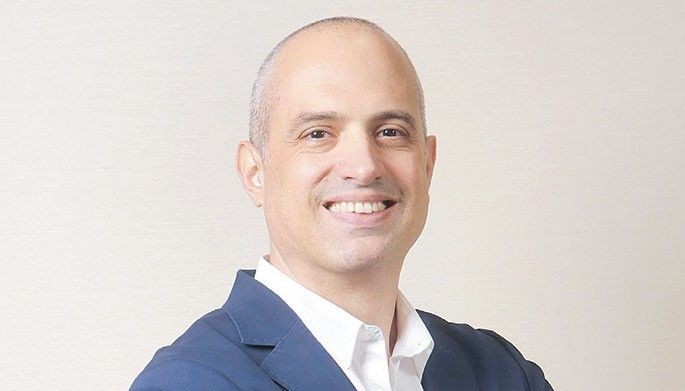MANILA, Philippines — If Ofir Eyal needed any proof that the Philippines is “Viber country” – a country known for its high engagement with text, voice and video messaging apps – he got it as soon as his plane landed during his first visit to the country in early July for Rakuten Viber’s Asia Pacific workshop.
“Viber is available in over 190 countries, but adoption rates vary greatly from place to place, so it's always so refreshing and fun when we visit a so-called 'Viber country' like the Philippines,” says Eyal, CEO of Rakuten Viber. “From the moment I landed, I heard Viber ringtones and messaging sounds and saw people using the Viber app on their laptops.”
“It's kind of an exercise in humility in a country where we're not the biggest messaging app,” he added, “but it's also nice to come here and ride the wave of popularity.”
Your messaging app of choice
The Philippines is known as the “texting capital of the world,” so it was only a matter of time before Viber, which debuted in 2010 and was acquired by Japanese tech conglomerate Rakuten Group in 2014, became Filipinos' messaging app of choice. Monthly active users in the country have grown 13 percent year-over-year, with penetration expected to reach 71 percent by 2023.
The Philippines is such an important market for Viber that during this interview, members of the app's product team were in the room next to the CEO, conducting usability studies with local users. The goal is to create products and services that meet the specific needs of Filipinos while also being relevant to other markets.
“Data and SMS prices have always been high in the Philippines and the market has been budget-conscious. So Viber started out of a need to provide better service while saving people money. That's why we've seen strong sales in the first two years,” says Eyal. “Today, messaging is a commodity. We look at our competitors and try to stay ahead of the curve. And the way to stay ahead of the curve is to offer more value-added services. We want to capture as much value as we can and build it into the Viber app. That's our super app vision.”
First communication, and now commerce
It comes as no surprise that the app is not just a means of communication but also a platform for commerce, especially for Philippine micro, small and medium-sized enterprises (MSMEs). There are at least one million registered MSMEs in the country, many of which are already using the app's public business profile feature exclusively for business-related transactions, from communicating with customers and colleagues to buying and selling food, beverages and other products.
Cebu’s small and medium-sized businesses are certainly embracing Viber as an effective tool for business: Asa Ta Bai, a Viber channel for Cebuanos launched in 2022, has 243,000 subscribers. Let’s Eat Bai, Cebu’s first and largest online food community, is slowly finding its footing with about 10,000 subscribers.
“Filipinos are very independent and entrepreneurial, which is why we see a high proportion of small and medium-sized businesses here,” he says. “And essentially, these small businesses don't even operate from an office, they don't have laptops, they do everything on their mobile devices. It makes sense that the tools they use to manage their business are the same tools they use to interact with their customers: talking today, booking tomorrow, taking payment the day after that.”
Viber Pay
This year, Filipino entrepreneurs and their customers will be able to use Viber Pay, which works like their existing e-wallet, but without the need to switch apps to access it. Available to Viber users in Germany and Greece, Viber Pay was first announced for the Philippines in 2022.
“We're in the final stages,” Eyal said of the highly anticipated feature. “We're really trying to make this experience as smooth, reliable and secure as possible.”
Security remains a top priority for Viber, and app users appreciate caller ID, which lets them identify who is calling (including potential spammers) even if their phone number isn't saved in their contact list.
Viber messages are end-to-end encrypted by default, so once a message is sent, it is not only deleted from Viber's systems but can only be read by the sender and recipient. You can also enable the disappearing messages feature, which will delete any sensitive information based on a self-destruct timer you set.
To strengthen its position as an efficient and secure commerce platform, Rakuten Viber has been working closely with local partners who are laying the groundwork for Viber Pay to serve as a digital payment solution.
“The idea is to add more layers or circles of security, so that even if one circle is compromised, somehow there are more circles of protection around it,” he explains. “Safety and security are definitely at the heart of what we do, and I assure all our users in the Philippines, we adhere to the highest security standards in the world and we take every precaution to ensure that your information is safe.”


